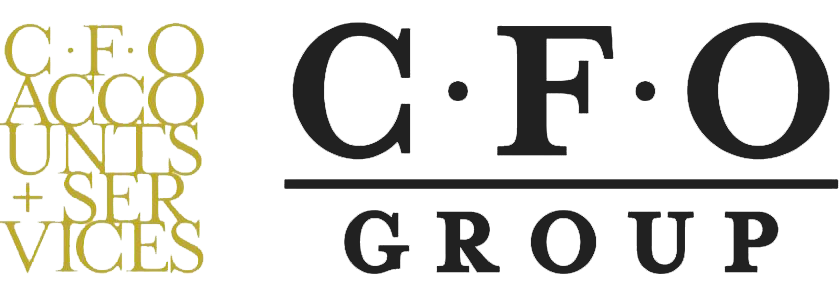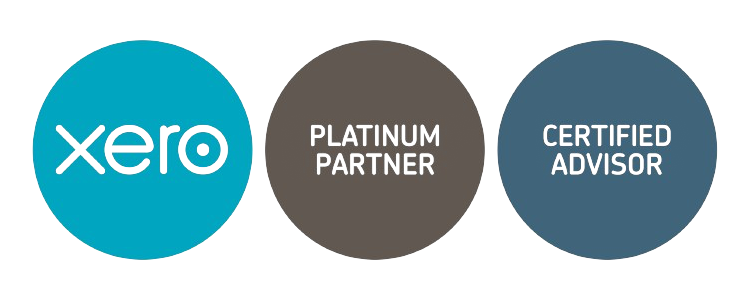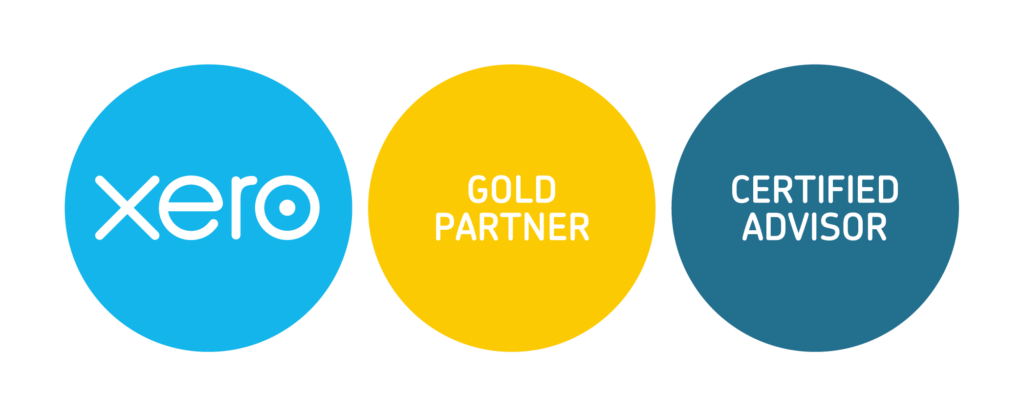CFO GROUP INTEGRATED SERVICES
Maximizing Benefits with the New Company Tax Exemption Scheme
CFO Group • October 2, 2024
The new company tax exemption allows startups to reduce early tax expenses, ensuring more funds for reinvestment and growth. This article breaks down the details of this tax exemption, highlighting its benefits, eligibility criteria, and application steps.
Filing annual returns is more than just a legal necessity; it’s a cornerstone of good corporate governance. It provides a detailed overview of a company’s corporate structure, financial status, and adherence to local regulations. Ensuring your company’s information is current not only helps in meeting legal obligations but also builds trust with stakeholders and enhances your company’s reputation.
Key Takeaways
Filing annual returns in a timely manner is not just a bureaucratic necessity; it’s a critical aspect of maintaining your company’s good standing with regulatory authorities. As a business owner or an appointed officer, understanding the intricacies of this process can save you from potential penalties and enhance your company’s reputation. Whether your company has at least one director or more than one director, ensuring that your annual returns are up to date is a responsibility that cannot be overlooked.
- The New Company Tax Exemption Scheme in Singapore provides significant tax relief for startups, allowing them to reinvest savings and foster growth during their initial operational years.
- Eligibility for the tax exemptions is contingent on criteria such as incorporation as a private limited company and active engagement in recognized income-generating activities in Singapore.
- The application process for tax exemptions necessitates accurate documentation and timely submissions to the Inland Revenue Authority of Singapore, ensuring compliance and ongoing benefits.
Understanding the New Company Tax Exemption Scheme
Singapore’s tax exemption scheme is a strategic initiative aimed at boosting startup growth and success by creating a pro-business environment. This initiative includes various types of tax exemptions such as Full Tax Exemption, Partial Tax Exemption, and Start-Up Tax Exemption, making Singapore’s corporate tax rates and tax exemption schemes some of the most competitive in the world. The scheme’s primary goal is to alleviate the tax burden on new companies, allowing them to reinvest savings into their business for further growth and development.
The scheme’s comprehensive approach ensures that new companies can benefit from substantial tax relief during their initial years. This not only helps in sustaining the business but also provides a competitive edge in the global market through tax incentive schemes.
Definition of Chargeable Income
Chargeable income is a pivotal concept in understanding a company’s tax obligations. It represents the income on which a company is liable to pay tax after deducting allowable expenses. Essentially, it is the company’s taxable income after accounting for all permissible deductions, including the estimated chargeable income.
Singapore’s corporate income tax rate is a flat 17% on chargeable income, highlighting the importance for businesses to accurately calculate it to determine their tax liability.
Duration of Tax Exemption Benefits
New companies in Singapore can benefit from tax exemptions for their first three consecutive Years of Assessment (YAs). This Start-Up Tax Exemption applies from the company’s first Year of Assessment, providing significant tax relief during the critical early years of operation.
Knowing these timelines aids in planning and optimizing the financial strategy of new businesses.

Eligibility Criteria for New Company Tax Exemption
Qualifying for tax exemptions in Singapore is relatively manageable for most small to medium enterprises. However, startups must meet specific eligibility requirements to avail themselves of these benefits. The criteria include incorporation as private limited companies in Singapore, with a maximum of 20 shareholders, where at least one holds a minimum of 10% of ordinary shares. Additionally, startups must engage in recognized core income-generating activities that significantly contribute to their revenue.
Meeting these criteria aligns the company with the government’s objective of fostering genuine economic activities. Proper structuring from the outset ensures eligibility for the tax exemption scheme.
Requirements for Tax Residency
For a company to qualify as a tax resident in Singapore, its control must be exercised in the country. Additionally, management activities should also take place within Singapore. Key decision-making processes must occur within the country.
A company incorporated in Singapore may still be classified as a non-resident if its management decisions occur outside of the country. Understanding these criteria is crucial for new companies navigating Singapore’s tax landscape.
Exclusions from the Scheme
Some companies do not qualify for the start-up tax exemption scheme. These exclusions are specific. Investment holding companies and property developers, for instance, do not qualify for these tax exemptions. Recognizing these exclusions is crucial for businesses when considering their eligibility for tax exemption benefits.

Specific Tax Exemptions Available
New companies can benefit significantly from specific tax exemptions available under Singapore’s tax exemption scheme. The Start-Up Tax Exemption scheme provides substantial relief on taxable profits during the initial operational years. Additionally, companies limited by guarantee may qualify for the Start-Up Tax Exemption under certain conditions. Beyond the start-up phase, the partial tax exemption scheme offers ongoing tax relief, further supporting business growth and sustainability.
These exemptions are designed to alleviate the financial burden on new businesses, enabling them to reinvest savings into their operations. Understanding and leveraging these exemptions can enhance a startup’s financial stability and growth prospects.
Full Tax Exemption for Start-Ups
Under the Start-Up Tax Exemption, the first S$100,000 of chargeable income for eligible startups is exempt from taxes up to 75%. This substantial tax relief allows new companies to retain more resources for growth and investment, fostering a supportive environment for entrepreneurship.
Partial Tax Exemption Scheme
The partial tax exemption scheme allows companies to exempt 50% of the next S$190,000 of chargeable income after the initial full exemption period. This means that 50% of the next S$190,000 is exempt from tax, providing ongoing relief and supporting business sustainability. Additionally, the partial tax exemption pte provides further benefits for qualifying companies.
All companies, including those limited by guarantee, are eligible for this partial tax exemption.

Application Process for Tax Exemption
The process of applying for tax exemptions involves meeting specific qualifying criteria and submitting the correct forms and necessary supporting documents to the Inland Revenue Authority of Singapore (IRAS). The necessary forms consist of the YA Form and Appendix 1. Additional supporting documents are also required. After receiving tax exemptions, startups must submit annual tax returns, financial statements, and tax computations to maintain compliance.
Timely filing of tax returns and maintaining accurate records ensure ongoing tax compliance. This ensures that businesses continue to benefit from the exemptions without facing penalties or issues with the tax authorities.
Required Documentation
The necessary documents for applying for tax exemption include financial statements, particulars of shareholders, and details of Core Income-Generating Activities (CIGAs). Forms such as Form C-S, Form C-S (Lite), and Form C-C are required to claim the tax exemption. Accurate documentation is essential for a smooth application process and maximizing the chances of benefiting from the exemptions.
Startups must adhere to filing requirements, including annual returns and maintaining financial records for at least five years.
Submission Procedures and Deadlines
Submitting tax exemption applications on time is crucial to avoid financial penalties. Startups must submit their application for tax exemption during the annual filing of their corporate tax returns. Accurate and complete information expedites the application process and ensures compliance with the Inland Revenue Authority of Singapore (IRAS).
For a company to be eligible to file Form C-S, its revenue threshold must be S$5 million or less. Filing incorrect tax returns can lead to significant penalties, making accuracy paramount.
Calculating Taxable Income for New Companies
Calculating taxable income for new companies involves understanding chargeable income, deductions, and allowances. Taxable income includes income derived from Singapore or remitted to the country. The tax exemption rate for the next S$100,000 of chargeable income for new companies under the scheme is 50%. For new companies with a chargeable income of S$100,000 under the Start-Up Tax Exemption scheme, the effective tax rate is 4.25%. New companies can claim tax exemption by filing their corporate tax return as usual, which allows IRAS to compute the exemption automatically. Documentation of core income-generating activities is required when applying for tax exemptions.
Detailed records are crucial for compliance and accurate reporting of income and deductions, ensuring businesses can maximize tax benefits while maintaining transparency and accountability.
Allowable Deductions and Expenses
Expenses solely incurred to generate income qualify as deductions for tax purposes. Common deductible expenses consist of:
- staff salaries
- rent
- utilities
- professional fees
An expense is only deductible if it is entirely and exclusively related to income production. It must meet this requirement to qualify for deduction.
Additionally, capital allowances provide deductions for the cost of business assets over their useful life, further reducing the taxable income.
Treatment of Special Income Types
Special income types, such as investment and foreign-sourced income, can have distinct tax treatment and criteria for exemption. Investment income may be treated differently than regular income, affecting its tax treatment.
To achieve tax exemption, foreign-sourced income must generally meet specific criteria under Singapore’s tax laws. Understanding these nuances is crucial for businesses to optimize their tax strategy and compliance.

Compliance and Reporting Obligations
Compliance with ongoing tax obligations is essential even after receiving tax exemptions. New companies must accurately report income and adhere to regulatory requirements. Establishing a clear tax compliance strategy helps businesses adapt to obligations following the end of their tax exemption period.
Preparing for the transition to standard taxation well in advance ensures a smooth shift without financial disruptions.
Filing Corporate Income Tax Returns
All companies are required to submit their corporate income tax returns regardless of their profit status. The deadline for filing corporate income tax returns in Singapore is November 30 each year. Startups should be aware of submission timelines to avoid penalties. Even companies that do not make profits are still required to file tax returns.
A company is required to file an Estimated Tax Return. This must be done within three months after the financial year-end.
Record-Keeping Requirements
Proper records to support expense claims are essential for tax compliance and optimizing deductions. Documentation such as invoices and receipts is necessary to substantiate claims for deductible expenses.
Startups must maintain financial records for a duration of five years, ensuring they can provide evidence of their financial activities if required.
Transitioning from Tax Exemption to Regular Taxation
Startups approaching the end of their tax-exempt period need to prepare for a change. It’s important to plan for the transition to regular taxation. This transition involves preparing for changes in financial obligations and cash flow management. Proper planning ensures that businesses are not caught off guard by the increased tax liabilities and can continue to thrive even after the tax exemption benefits expire.
Grasping the financial impact of the transition is crucial. Startups should assess their increased tax liability and adjust their financial strategies accordingly. This involves revisiting budgets, forecasts, and cash flow projections to ensure that they can meet their tax obligations without compromising their operational efficiency.
Assessing Financial Impact
The financial impact of transitioning from tax-exempt status to regular taxation will primarily depend on the increased tax liability incurred by the company. Companies should analyze their financial statements and assess how the additional tax burden will affect their profitability and cash flow.
This assessment aids in making informed decisions about cost management, pricing strategies, and investment plans.
Strategic Planning for Future Tax Obligations
Developing a comprehensive tax strategy is essential for mitigating the impact of transitioning to standard tax rates. This includes exploring available tax incentives, optimizing deductions, and ensuring compliance with tax regulations.
Integrating tax planning into the overall business strategy helps companies manage tax liabilities effectively and sustain growth momentum.
Tax Incentives and Reliefs Beyond Exemption
Beyond the initial tax exemptions, Singapore offers several tax incentives designed to attract businesses and promote their growth. These incentives include the Pioneer Certificate, Development and Expansion Incentive, and various industry-specific incentives provided through agencies like the Economic Development Board and Enterprise Singapore. Effective tax planning can reduce financial strain by optimizing deductions and leveraging available tax incentives.
Incorporating tax incentives into the overall business strategy can significantly enhance a startup’s financial positioning. Companies can enhance tax efficiency by exploring available tax incentives and deductions as part of their future tax planning. This proactive approach helps businesses stay competitive and financially robust in a dynamic market environment.
Double Tax Deduction for Internationalization
The Double Tax Deduction for Internationalization (DTDi) is designed to alleviate the financial burden faced by companies engaging in international business activities. By reducing the effective tax rate on income generated from foreign operations, this deduction promotes competitiveness and encourages businesses to expand globally.
To qualify, companies must show that their activities contribute to internationalization efforts and submit the necessary application forms and evidence.
Foreign Tax Credit
Singapore provides a foreign tax credit mechanism to help companies avoid double taxation on foreign-sourced income. This credit allows businesses to offset the taxes paid in foreign jurisdictions against their Singapore tax liability, ensuring that they are not taxed twice on the same income.
By leveraging the foreign tax credit, companies can improve their global tax efficiency and reduce their overall tax burden.
Summary
In summary, Singapore’s new company tax exemption scheme offers substantial benefits to startups, fostering a pro-business environment that supports growth and innovation. By understanding the eligibility criteria, application process, and compliance obligations, new companies can maximize their tax savings and invest more resources into their operations. As businesses transition from tax exemption to regular taxation, strategic planning and effective tax management become crucial. Leveraging additional tax incentives and reliefs further enhances a company’s financial stability and competitiveness. With the right approach, startups can navigate the complexities of corporate taxation and thrive in Singapore’s dynamic business landscape.
Unlock the Full Benefits of the New Tax Exemption Scheme with CFO ACC SG
Navigating the complexities of Singapore's tax exemption scheme can be challenging, but at CFO ACC SG, we simplify the process for you. Our expert corporate tax advisors ensure that your startup maximizes its tax benefits while staying compliant with all IRAS regulations.
Why CFO ACC SG?
- Expert Guidance: We help you understand the eligibility criteria and apply for tax exemptions efficiently.
- Accurate Filing: Our team ensures timely submission of tax returns, complete with accurate documentation.
- Ongoing Support: We manage compliance beyond the exemption period, helping your business thrive with a tailored tax strategy.
Let us handle the complexities of your startup’s tax obligations so you can focus on growth. Contact CFO ACC SG today for a consultation and maximize your tax savings!
Frequently Asked Questions
What is the purpose of Singapore's tax exemption scheme for new companies?
The tax exemption scheme for new companies in Singapore aims to encourage entrepreneurship and facilitate the growth of local enterprises by offering significant tax relief in their early years of operation. This initiative supports the establishment and sustainability of new businesses in the economy.
What are the eligibility criteria for the Start-Up Tax Exemption?
Startups must be incorporated as private limited companies in Singapore, have no more than 20 shareholders, and be involved in recognized core income-generating activities to be eligible for the Start-Up Tax Exemption.
How long do the tax exemption benefits last for new companies?
The tax exemption benefits for new companies last for the first three consecutive Years of Assessment from the date of their incorporation.
What documentation is required to apply for tax exemption?
To apply for tax exemption, you must provide financial statements, shareholder details, information on Core Income-Generating Activities (CIGAs), and specific forms like Form C-S, Form C-S (Lite), and Form C-C. It is essential to ensure all necessary documentation is complete for a successful application.
What are the key deadlines for submitting tax exemption applications?
The key deadline for submitting tax exemption applications coincides with the annual filing of corporate tax returns, specifically due by November 30 each year. It is essential to adhere to this timeline to ensure compliance.










